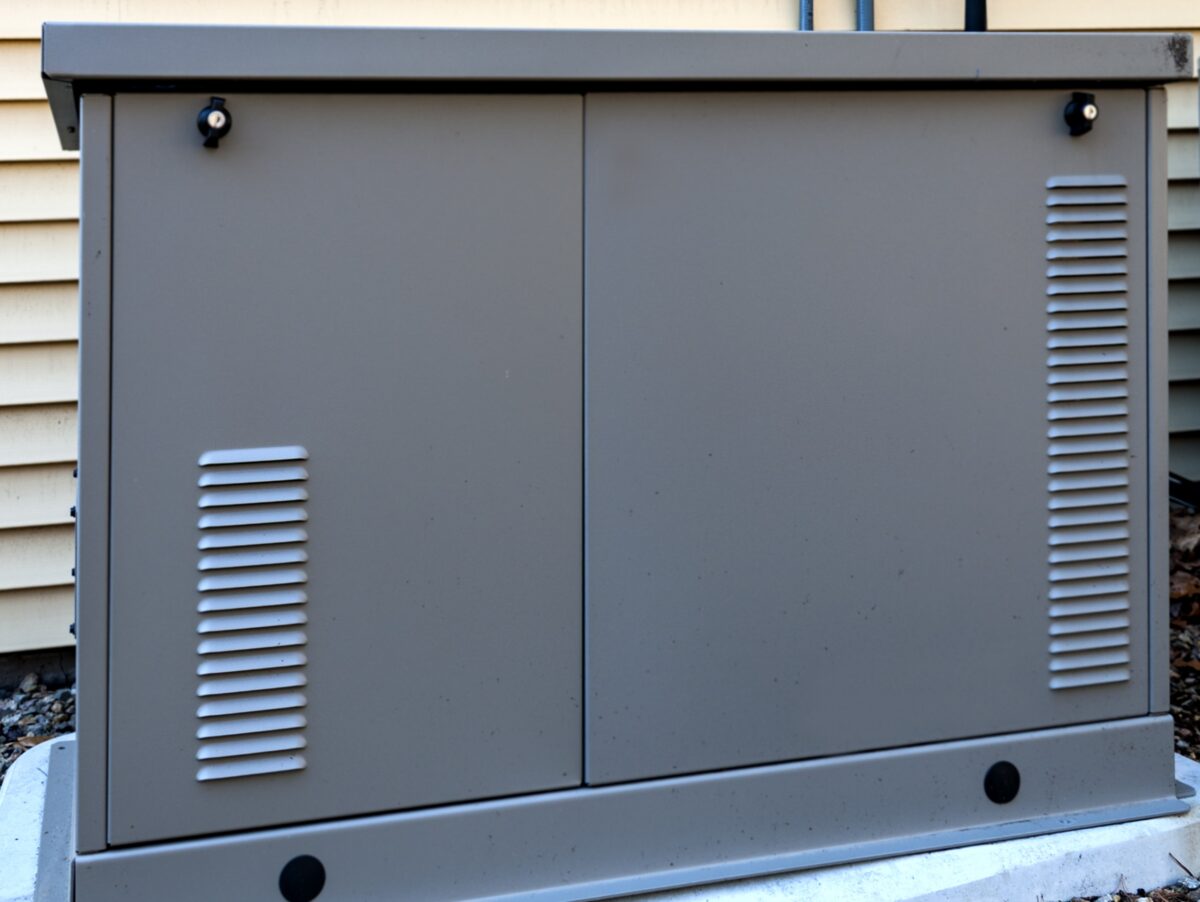Essential Generator Safety Rules During Storm Season

As storm season approaches in Florence, SC, and its surroundings, understanding generator safety rules becomes paramount. The reliance on generators increases significantly during power outages, a common occurrence in this period. However, without proper knowledge and precautions, the use of generators can lead to dangerous situations, including fires, electrocution, or carbon monoxide poisoning. It’s essential to prioritize safety to protect your home, family, and electrical system.
Placing generators outdoors is a critical safety measure to prevent carbon monoxide poisoning. Inside homes, garages, or enclosed spaces, generators can produce dangerous levels of carbon monoxide, invisible and odorless but deadly. Ensuring your generator operates outside, away from windows and doors, can safeguard your family’s health and well-being. This simple step is a cornerstone among generator safety rules.
Using the correct extension cords is equally important for generator safety. Not all extension cords are created equal, and using one not rated for outdoor use or the power output of your generator can result in overheating or fire. Residents of Quinby, SC, and other areas prone to storms should ensure they have heavy-duty, outdoor-rated extension cords to connect their appliances safely to the generator. This precaution helps prevent electrical hazards and protects your equipment.
Lastly, avoiding backfeeding is a crucial aspect of generator safety rules. Backfeeding occurs when a generator is connected directly to a home’s electrical panel without a proper transfer switch, risking the safety of utility workers and neighbors and potentially damaging the electrical system. Understanding and implementing these generator safety rules are key to navigating storm seasons in Florence, SC, and beyond with confidence and security, ensuring that you and your loved ones remain safe during power outages.

The Importance of Generator Safety Rules During Storms
Understanding generator safety rules is not just about preventing immediate dangers, it also ensures the longevity of your generator and electrical appliances. Proper maintenance is key to safe operation during storm season. Regularly checking the generator for any signs of wear and tear, and ensuring it’s serviced according to the manufacturer’s recommendations, can prevent malfunctions that may lead to safety hazards. This proactive approach keeps your generator ready to perform when you need it most, especially in Florence, SC, where storms can strike with little warning.
Fuel storage is another critical aspect of generator safety that often goes overlooked. Storing fuel in a safe, dry place away from living areas minimizes the risk of fire. It’s important to use the correct type of fuel, as recommended by the generator’s manufacturer, to avoid damaging the engine. Safe fuel handling and storage are essential practices that complement the operational safety of your generator, ensuring it’s both a reliable and safe source of power during outages.
In addition to physical safety measures, understanding your generator’s capacity is crucial to avoid overloading. Connecting more appliances than the generator can handle can lead to overheating, which poses a fire risk. Residents of Quinby, SC, and surrounding areas should assess their power needs and ensure they use a generator that can meet these demands without being pushed beyond its limits. This careful planning not only ensures safety but also helps in efficient power management during outages.
Lastly, educating all household members on generator safety rules is vital. Everyone should know the basics of safe generator operation, including starting and stopping procedures, what not to connect to the generator, and the importance of keeping it outside. This collective knowledge ensures that, even in the absence of the primary operator, the generator can be used safely and effectively. It’s a communal effort that enhances safety and preparedness during the storm season, making it a critical step for families in storm-prone regions.
Choosing the Right Location for Your Generator
Choosing the right location for your generator extends beyond simple convenience, it’s a fundamental part of adhering to generator safety rules. In Florence, SC, where storms can quickly escalate, positioning your generator on a flat, dry surface can prevent accidental tipping or water damage. This placement also ensures that the generator remains stable and secure during operation, minimizing the risk of accidents. Ensuring your generator is properly located is an easy yet effective step towards safeguarding your home and loved ones.
Distance from the home is another critical consideration that often gets overlooked. Generators should be placed at least 20 feet away from your house, facing away from windows and doors to prevent carbon monoxide from entering the home. This precaution not only aligns with generator safety rules but also protects your family from potential harm. Residents of Quinby, SC, should take special note of this guideline, especially during the storm season when generators are used more frequently.
Ventilation is key to preventing carbon monoxide buildup, a dangerous threat that is both odorless and colorless. Ensuring your generator is in an open area where air can circulate freely helps mitigate this risk. It’s a simple yet critical measure that complements the use of carbon monoxide detectors inside the home. By prioritizing proper ventilation, you’re taking a significant step towards ensuring the safety and well-being of everyone in your household.
Lastly, protecting your generator from the elements is essential, especially in areas prone to severe weather. Using a canopy or generator tent can shield your unit from rain and debris, preventing damage and ensuring it operates efficiently. However, it’s crucial to maintain adequate airflow to avoid overheating and ensure the generator’s exhaust is not obstructed. This balance between protection and ventilation is a cornerstone of generator safety rules, ensuring your generator remains a reliable source of power during outages.
The Dangers of Carbon Monoxide Poisoning
Understanding the dangers of carbon monoxide poisoning is critical when discussing generator safety rules. Carbon monoxide (CO) is a silent threat that can lead to serious health issues or even death if not properly managed. Ensuring your generator is placed outside and far from living areas is a fundamental step in preventing CO from entering your home. This simple action can be lifesaving, highlighting the importance of spatial awareness in generator use.
In Florence, SC, where storms can lead to frequent use of generators, installing carbon monoxide detectors inside your home adds an extra layer of protection. These detectors provide an early warning system, alerting you to the presence of CO before it reaches dangerous levels. It’s an essential safety measure that works hand in hand with proper generator placement to safeguard your family’s health during power outages.
Educating yourself and your family about the symptoms of carbon monoxide poisoning is equally important. Symptoms can include headache, dizziness, weakness, upset stomach, vomiting, chest pain, and confusion. Recognizing these signs early can prevent serious consequences, making awareness a key component of generator safety rules. It ensures that, in the event of exposure, quick action can be taken to mitigate the effects.
Lastly, regular maintenance of your generator can help reduce the risk of CO emissions. A well-maintained generator runs more efficiently and is less likely to produce hazardous levels of carbon monoxide. Residents of Quinby, SC, should ensure their generators are serviced according to the manufacturer’s recommendations, especially before storm season. This proactive approach complements the established safety rules, ensuring a safer use of generators during power outages.
Proper Extension Cord Usage for Generators
Proper extension cord usage is a pivotal part of generator safety rules, ensuring the safe operation of your generator during storm season. In Florence, SC, selecting the right extension cord can prevent overheating and potential fire hazards. It’s crucial to choose cords that are rated for outdoor use and can handle the wattage of your generator. This simple step significantly reduces the risk of accidents, keeping your home and family safe.
Residents of Quinby, SC, should always inspect extension cords for any signs of damage before use. Frayed wires, exposed cords, and broken plugs can lead to dangerous situations, including electrocution. By regularly checking and maintaining your extension cords, you ensure they are in good condition, which is essential for safe generator operation. This habit is a key component of adhering to generator safety rules.
Connecting multiple appliances directly to one extension cord is a common mistake that can overload the generator and the cord itself. To avoid this, use a heavy-duty power strip that’s capable of handling the load, and ensure it’s designed for outdoor use. This approach not only protects your generator but also ensures that all connected devices are safely powered. It’s a practical solution that aligns with generator safety rules, optimizing both safety and functionality.
Finally, storing extension cords properly when not in use extends their lifespan and maintains their safety features. Coiling cords loosely and storing them in a dry, cool place prevents damage and keeps them ready for the next use. This attention to care and storage is an often overlooked aspect of generator safety rules but is vital for ensuring the ongoing safety and reliability of your generator setup. Through these practices, residents can enjoy the benefits of their generator without compromising on safety.
Understanding and Preventing Backfeeding
Understanding and preventing backfeeding is a crucial aspect of generator safety rules that cannot be overstressed. When a generator is improperly connected directly to a home’s electrical system without a transfer switch, it creates a dangerous situation known as backfeeding. This not only poses a risk to the household but also endangers utility workers by potentially sending electricity back down the line. Residents of Florence, SC, should ensure a professionally installed transfer switch is part of their generator setup to avoid this hazard.
Backfeeding can also lead to severe damage to a home’s electrical infrastructure, resulting in costly repairs. By adhering to generator safety rules and using a transfer switch, homeowners protect their property and the broader electrical grid. This approach ensures that when the power returns, there are no unexpected surges that could harm electrical appliances or systems. It’s a preventive measure that safeguards both personal and community assets.
Educating oneself on the risks associated with backfeeding is essential for all generator users. Knowledge about the dangers of backfeeding and how to prevent it should be a priority for anyone relying on a generator during storm seasons. In Quinby, SC, where storms can lead to prolonged power outages, being informed and prepared can make a significant difference in ensuring safety and compliance with generator safety rules.
Finally, regular consultations with electrical professionals can help homeowners stay updated on the best practices for generator use and backfeeding prevention. These experts can offer advice tailored to individual needs, ensuring that each setup is as safe as possible. By following these generator safety rules, residents can enjoy the benefits of their generators without exposing themselves or their neighbors to unnecessary risks.
Generator Safety Rules for Fuel Handling
Adhering to generator safety rules when handling fuel is crucial, especially during storm season in Florence, SC. Fuel, if mishandled, can lead to dangerous fires or explosions. Always use the type of fuel recommended by the generator’s manufacturer to ensure efficiency and safety. Storing fuel in properly labeled, non-glass safety containers can prevent accidental ignition.
In Quinby, SC, residents should keep fuel stored away from living areas and the generator itself. A cool, dry place is ideal for storage, reducing the risk of vapors accumulating and igniting. It’s also important to avoid refueling the generator while it’s running or hot, as this can cause fuel to ignite. Waiting for the generator to cool down before refueling minimizes the risk of burns or fires.
Using a funnel or a specially designed fuel transfer device can prevent spills during refueling. Spilled fuel not only poses a fire risk but can also damage the environment. Cleaning up any spills immediately and safely disposing of the cleanup materials can further ensure safety. This practice is part of responsible generator use and adheres to safety protocols.
Finally, educating all household members on the proper fuel handling and storage procedures is essential. Knowledge about the dangers associated with improper fuel use and storage can prevent accidents. Regular checks for leaks or damage to fuel containers can also help in early detection of potential hazards. By following these generator safety rules, families can enjoy the benefits of their generators without compromising on safety.
Regular Maintenance: A Key to Generator Safety
Regular maintenance is not just a recommendation, it’s a necessity for ensuring the safety and longevity of your generator, particularly in Florence, SC, where storm season can put generators to the test. By scheduling routine check-ups, you can catch potential issues before they escalate into safety hazards. This includes checking the engine, oil levels, and filters, which are all crucial for the generator’s efficient operation. Keeping up with these tasks aligns with generator safety rules and ensures your generator is ready when you need it most.
In Quinby, SC, where storms can lead to extended use of generators, the importance of a thorough inspection cannot be overstated. Checking for worn or damaged parts is essential for preventing breakdowns that could lead to unsafe situations. Whether it’s replacing spark plugs or ensuring the battery is fully charged, these steps contribute to the safe operation of your generator. Adhering to a maintenance schedule is a proactive way to uphold generator safety rules.
The cooling system plays a vital role in the generator’s operation, preventing overheating that could result in a fire. Ensuring the coolant level is adequate and the system is free of leaks is a critical aspect of generator maintenance. This not only helps in adhering to generator safety rules but also enhances the efficiency of your generator, keeping it running smoothly during critical times. Regular maintenance checks include this as a key area of focus.
Lastly, keeping a detailed record of all maintenance activities helps in tracking the generator’s health and can be invaluable for troubleshooting issues. This record should include dates of service, parts replaced, and any repairs made. Such diligence not only ensures compliance with generator safety rules but also extends the life of your generator. By following these guidelines, residents can ensure their generators serve them well through many storm seasons.
Implementing Generator Safety Rules in Your Emergency Plan
Incorporating generator safety rules into your emergency plan is a crucial step for residents in Florence, SC, especially during storm season. By outlining specific procedures for generator use in your plan, you ensure that all family members understand how to operate the generator safely. This includes knowing how to start and stop the generator, as well as recognizing the importance of keeping it in a well-ventilated area outdoors. Such preparedness not only enhances safety but also ensures that your generator is used efficiently and responsibly.
For families in Quinby, SC, assigning roles and responsibilities related to generator operation can further reinforce safety measures. One family member could be responsible for checking fuel levels, while another ensures the generator is properly ventilated and operating at a safe distance from the house. This teamwork approach ensures that generator safety rules are followed consistently, reducing the risk of accidents or misuse during power outages. It also fosters a sense of responsibility and preparedness among all household members.
Regular drills that simulate power outages can help families practice implementing their emergency plans, including generator use. During these drills, everyone can practice setting up the generator, connecting necessary appliances, and executing other parts of the plan. This hands-on experience is invaluable, ensuring that, in the event of an actual power outage, every family member knows precisely what to do. It’s a proactive step that can make a significant difference in emergency situations.
Lastly, reviewing and updating your emergency plan and generator safety rules annually is important. This ensures that any new recommendations or changes in generator technology are incorporated into your plan. Residents of Florence, SC, and Quinby, SC, can benefit from staying informed about the latest in generator safety and maintenance. By keeping your emergency plan current, you ensure that your family remains prepared and protected during storm season, making safety a top priority.

Frequently Asked Questions
What are generator safety rules?
Generator safety rules are crucial for preventing accidents during storm season. Always place your generator outside to avoid carbon monoxide poisoning. Ensure you’re using the right extension cords designed for outdoor use. Lastly, never connect your generator directly to your home’s wiring, as this can cause backfeeding and endanger utility workers.
How to maintain a generator?
Maintaining your generator is key to ensuring it’s ready when you need it most. Check the oil level regularly and replace it according to the manufacturer’s guidelines. Inspect the air filter and clean or replace it to keep the engine running smoothly. Store your generator in a dry, safe place to protect it from the elements and ensure its longevity. Following these steps helps uphold generator safety rules and keeps your equipment in top condition.
Can generators be used indoors?
Generators must always be used outdoors to ensure safety. Placing them inside can lead to dangerous carbon monoxide buildup. This adheres to essential generator safety rules, protecting everyone from harm. Always remember, fresh air is crucial for safe generator operation.
What to avoid when using a generator?
When using a generator, avoid placing it near windows or vents to prevent carbon monoxide from entering the home. Never refuel it while it’s running, always turn it off and let it cool first. It’s also important not to overload it by plugging in too many appliances. Following these generator safety rules helps ensure your and your family’s safety during storm season.
Why are generator safety rules crucial?
Generator safety rules are vital for preventing accidents during power outages. They protect against fires, electrocution, and carbon monoxide poisoning. By ensuring generators are used correctly, these guidelines keep homes and families safe. Adhering to these rules also safeguards the electrical system from damage.
















